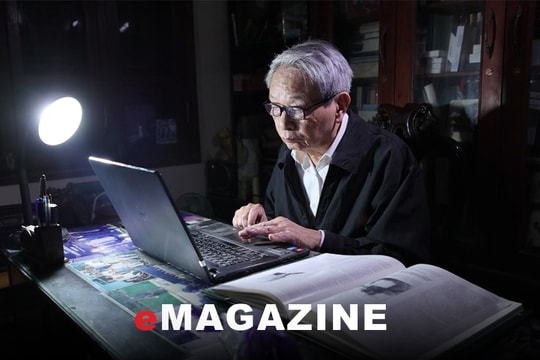"I feel cold down my spine"
“Reading the information about the facility soaking bananas in 2,4D herbicide for sale, I felt chills down my spine. This is so cruel, I cannot imagine it.”
That was the sharing of Minister of Agriculture and Rural Development Cao Duc Phat at the conference on quality management and food safety of agricultural, forestry and fishery products held on November 5.
Vegetables and meat contain banned chemical residues and antibiotics
According to Mr. Nguyen Nhu Tiep, Director of the Department of Agriculture, Forestry and Fisheries Quality Management and Food Safety Supervision, in the first 9 months of the year, 10.3% of vegetable samples had pesticide residues exceeding the permissible limit; 16% of meat samples had Salmonella, 7.6% of meat samples had chemical and antibiotic residues exceeding the threshold, and 1.01% of seafood samples were contaminated with banned chemical and antibiotic residues/exceeding the threshold.
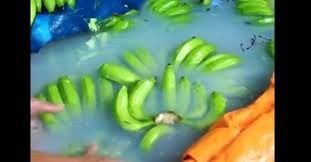 |
| Bananas soaked in herbicide. |
Also in the first 9 months of the year, the General Department and specialized Departments under the Ministry organized 22 specialized inspection teams as planned and 33 unscheduled inspection teams (reaching 119%). As a result, 1,198 decisions on administrative sanctions were issued with a total fine of 21,868 billion VND. The main violations were the production of agricultural materials outside the list/not ensuring quality, violating product labels, and factory conditions not ensuring...
A surprise inspection discovered and handled 5 companies using banned substances in the production of animal feed and veterinary medicine.
Must track down the lines and handle criminal cases
After hearing the report on the figures, Minister Cao Duc Phat said: Soaking bananas in herbicides and selling them to others to eat is not an administrative violation but a cruel act. We must fight evil, we must be determined, we cannot accept one person poisoning many others, including children.
“We have 1,000 samples that tested positive for salbutamol, from which we must trace the networks. They said they bought it from street vendors, which is unacceptable,” the Minister emphasized.
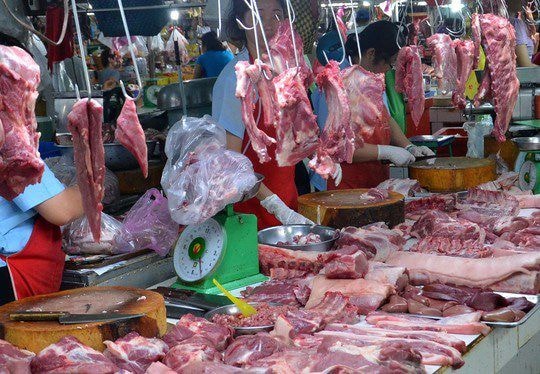 |
| 23.6% of meat samples contained banned substances and antibiotic residues exceeding the threshold. |
Ms. Dinh Thi Phuong Khanh, Deputy Director of the Department of Agriculture and Rural Development of Long An province, also said that the fight against banned substances must be like the fight against drugs, and must be handled criminally and cannot be left "halfway" like that.
According to Ms. Khanh, it is currently very difficult to trace the origin of livestock, and there is also a group of traders secretly forcing farmers to use it, because the purchase price is often 2,000-5,000 VND/kg higher.
However, the current sanctions are not enough to deter. For example, Decree 119 stipulates that the penalty for using banned substances is only 5-10 million VND for households and 10-20 million VND for farms. Ms. Khanh believes that when amending the Penal Code this time, the use of banned substances must be included.
“The most inappropriate regulation now is that if food causes 10-20% damage to health, it will be handled. Now, if you eat banned substances every day, a little bit will remain, not die immediately after eating. Should we wait for people to die before tracing what they ate and where it came from? Handling must be thorough, when banned substances are discovered, criminal proceedings must be taken, not waiting for people to get sick and die before handling. That would be very difficult for the people,” Ms. Khanh emphasized.
At the Conference, Colonel Tran Trong Binh, Deputy Director of Department C49 (Ministry of Public Security) also gave a startling figure: "In 2014 alone, the number of cancer cases reached 150,000-200,000 people, the number of cancer deaths was 82,000 people. Of which, 75-95% of the cases were due to environmental factors and food safety."
Colonel Binh also said that food safety violations need to be criminalized instead of being administratively punished as before.
“We have arrested people who bought banned substances such as formaldehyde to produce pho noodles, borax to put in ham, urea to put in fish, but because of regulations, we still cannot handle them. If we wait until these banned substances cause death before constituting a crime, it is not possible,” said Colonel Binh.
Organize weekly fairs for safe agricultural products
When the Hanoi Department of Agriculture and Rural Development was reporting on the food safety situation in the area, about the results achieved such as Hanoi did not detect the use of banned substances, had many directive documents, many places committed to safe production.... The Minister of Agriculture immediately interrupted: "What consumers care about is where to buy clean vegetables? Who certifies? What they need is a piece of meat, a bunch of vegetables that are safe, not how many circulars there are in total."
At the Conference, the Minister expressed: "Reading the information about the facility soaking bananas in 2,4D herbicide for sale, I felt chills down my spine. This is such a cruel act, I cannot imagine it." Resolutely deal with acts of using banned substances; detect and trace the origin.
Minister Phat said that next week the Ministry will work with businesses that have established safety standards to issue certificates, announce to the public the addresses of safe food as well as signs to identify which products are truly clean. The first implementation will be in two major cities, Hanoi and Ho Chi Minh City.
Deputy Minister Vu Van Tam also requested that Hanoi and Ho Chi Minh City from now until Tet must point out to consumers a few places where they can buy safe agricultural products with guaranteed certification stamps. Hanoi and the provinces must organize fairs to sell safe agricultural products and food at least once every 1-2 weeks.
According to Infonet


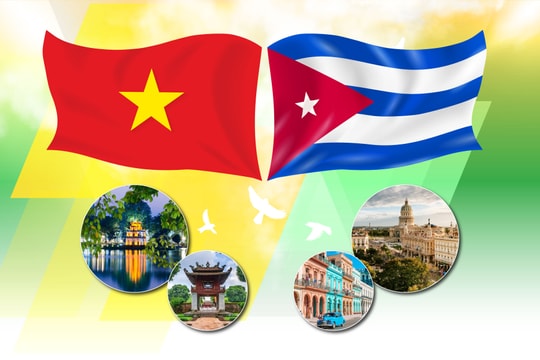
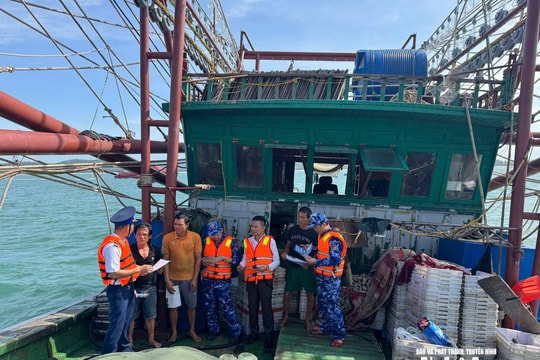
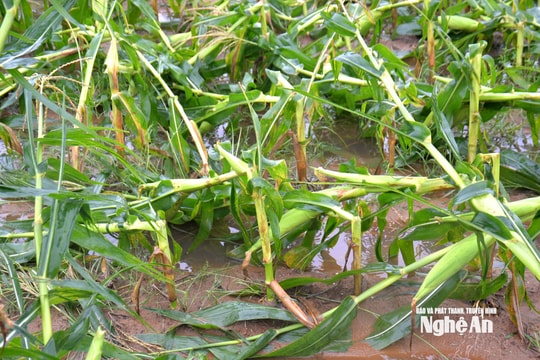
.jpg)

